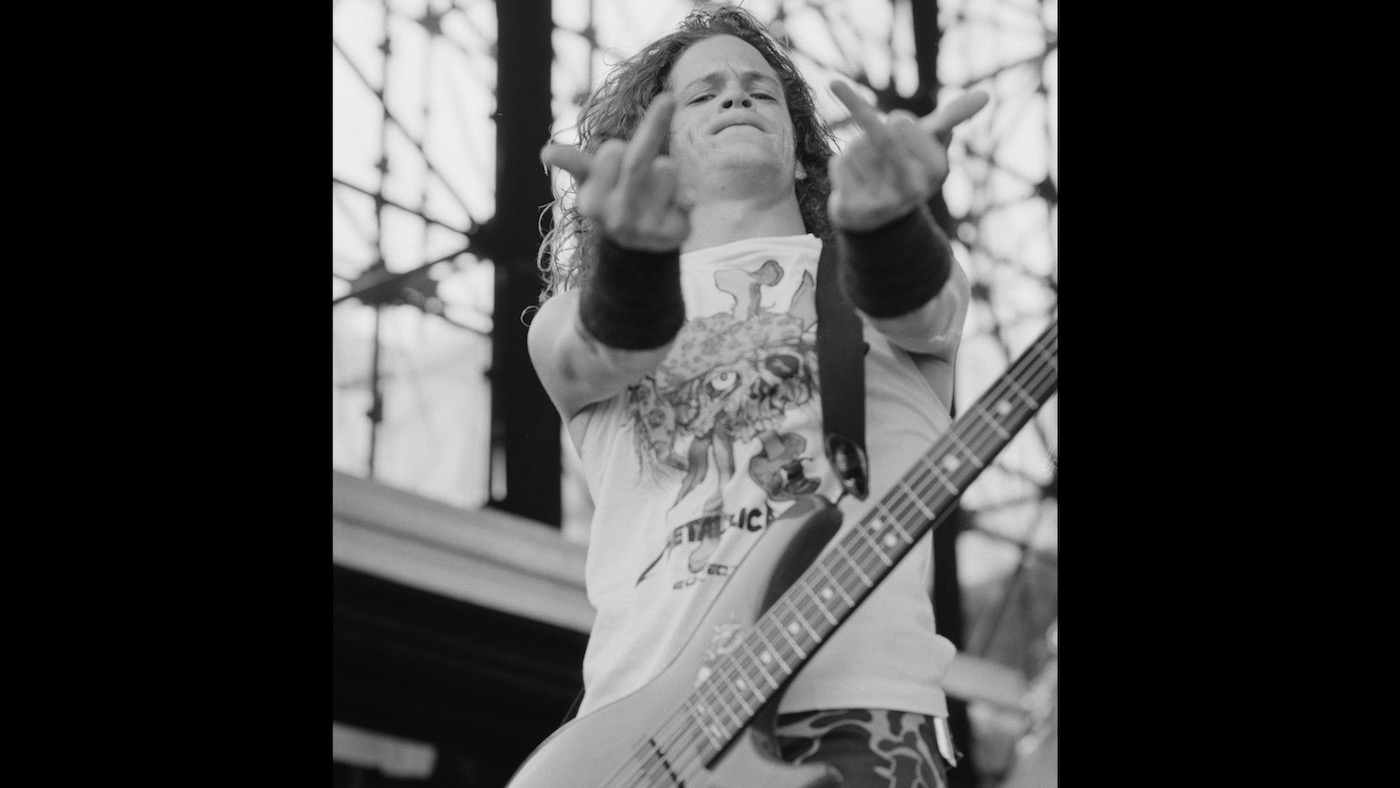Jason Newsted admits he was “fucking livid” when he heard Metallica’s …And Justice For All album for the first time and discovered that James Hetfield and Lars Ulrich had approved a mix which rendered his contributions to the album almost inaudible.
In an exclusive interview with Metal Hammer’s Stephen Hill, the band’s former bassist recalls being horrified upon hearing the final mix of the group’s fourth album, which is officially credited to Steve Thompson and Michael Barbiero who had worked together on Guns N’ Roses’ 1987 debut album Appetite For Destruction.
“I was fucking livid!,” Newsted reveals. “Are you kidding me? I was ready [to go] for throats, man!”
“No, I was out of my head, because I really thought I did well,” he admits, more seriously. “And I thought I played how I was supposed to play.”
Having joined Metallica in the wake of Cliff Burton’s tragic death in 1986, Newsted was excited about making his mark on his full-length recording with the band. That none of his bandmates nor producer Flemming Rasmussen bothered to show up at LA‘s One On One studio on the single day allotted to record bass lines for the album didn’t immediately strike Newsted as unusual, unused as he was to the band’s working practices.
With the benefit of hindsight, as he admits to Stephen Hill, Newsted perhaps shouldn’t have been hugely surprised that the sessions in north Hollywood effectively became The Hetfield/Ulrich Show.
“Lars and James were the original garage band duo, as far as that goes,” he says. They always made the records that way, from [1982 demo cassette] No Life ’Til Leather, it was Lars and James, guitar and drums. On the original No Life ’Til Leather cassette - if you happen to ever see a real copy or a photo of a real copy - in Lars’ handwriting, in ink pen, on the label of the cassette, [it reads] ‘Turn bass down on stereo’. On No Life ’Til Leather!”
“They mixed it how it was supposed to be mixed: there’s the bass and there’s the guitar from all the way back. But Lars didn’t want [that] because it messed with his drums somehow, so when he sends the demo out to fucking Combat Records and wherever, [his instruction is] ‘Turn the bass down before you even listen to this.’ Before you even get it going, just turn the bass down. Right from the get go. Before you even start. That’s where he’s been his whole goddamn life, so why would it be any different when it came to […And Justice For All]? They made Kill ’Em All that way, they made Ride… that way, they made Master… that way, all of them. Those two guys in a room [mimics drum beats and playing], that’s the way it always happened. [For] the most successful metal band of all time. So you argue with this shit? I’m not really sure.”
“Now it’s become the best garage band album ever [for artists such as] Black Keys, White Stripes, Duo Jets, the different ‘power duos’ of garage stuff.”
In a December 2008 interview with Decibel magazine to mark the album’s 20th anniversary, Lars Ulrich denied that there was any malice involved in Newsted’s parts on the album being buried to the point where they‘re scarcely audible to the human ear.
“No, it wasn't intentional,” he said. “Justice… was the James and Lars show from beginning to end, but it wasn’t, ‘Fuck this guy — let’s turn his bass down.’ It was more like, ‘We're mixing, so let's pat ourselves on the back and turn the rhythms and the drums up.’ But we basically kept turning everything else up until the bass disappeared.” (Laughs)
In the same interview, Kirk Hammett offered a musical justification for Metallica’s ‘NewKid’ being so low in the mix.
“The reason you can't hear the bass so well is because the bass frequencies in Jason's tone kinda interfered with the tone that James was trying to shoot for with his rhythm guitar sound, and every time the two blended together, it just wasn't happening,” he explained. “So the only thing left to do was turn the bass down in the mix. It was unfortunate.”
“It was an experiment, too,” he added, “we were totally going for a dry, in-your-face sound, and some people really like that sound. A lot of the newer-generation bands, especially, think that album sounds great. But at the end of the day, it was an experiment. I'm not really sure it was 100 percent successful, but it is a unique sound that that album has.”
“If the Justice… album had been mixed like a regular record, we wouldn’t be talking about it right now,” says Jason Newsted in conclusion. “It would’ve did what it did and we still would say it sells a couple thousand copies a year, or month, or week, whatever, and it does its thing, and it just sounds like it sounds and there you go. But because of the way it all came out, it became such an unnecessary big fucking deal, [and] we’re still talking about it again. I think it was brilliant they didn’t even realise how fucking brilliant they were in their drunk stupor to do what they did!”
Look out for more exclusive insights from Jason Newsted in the week ahead. Listen to the full conversation on the Metal Hammer podcast below.
The new issue of Classic Rock magazine, which celebrates 30 years of the Black Album with new interviews and insights, is on sale now.

